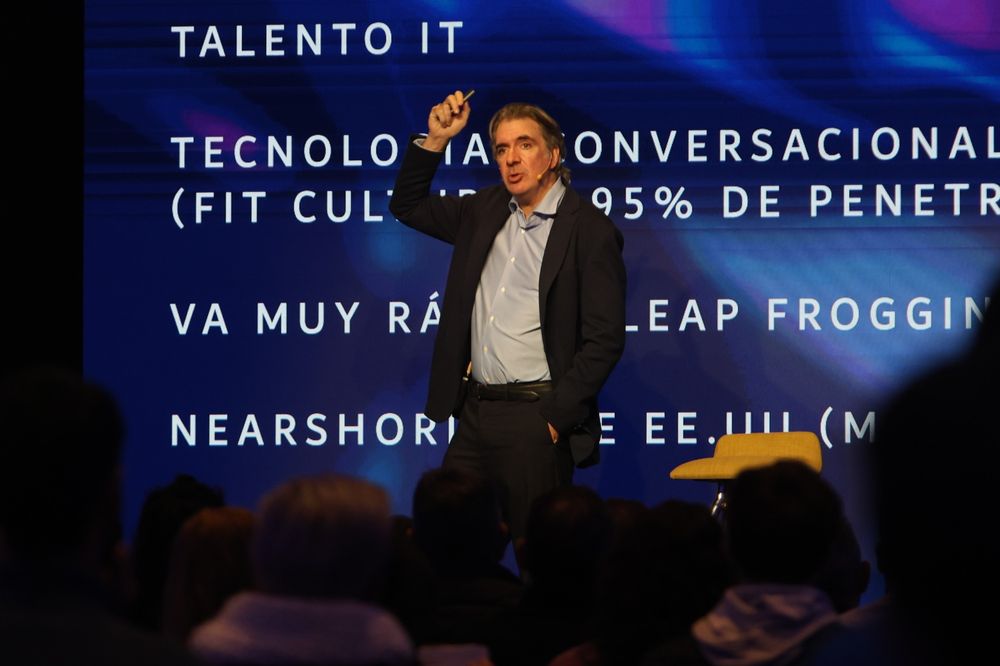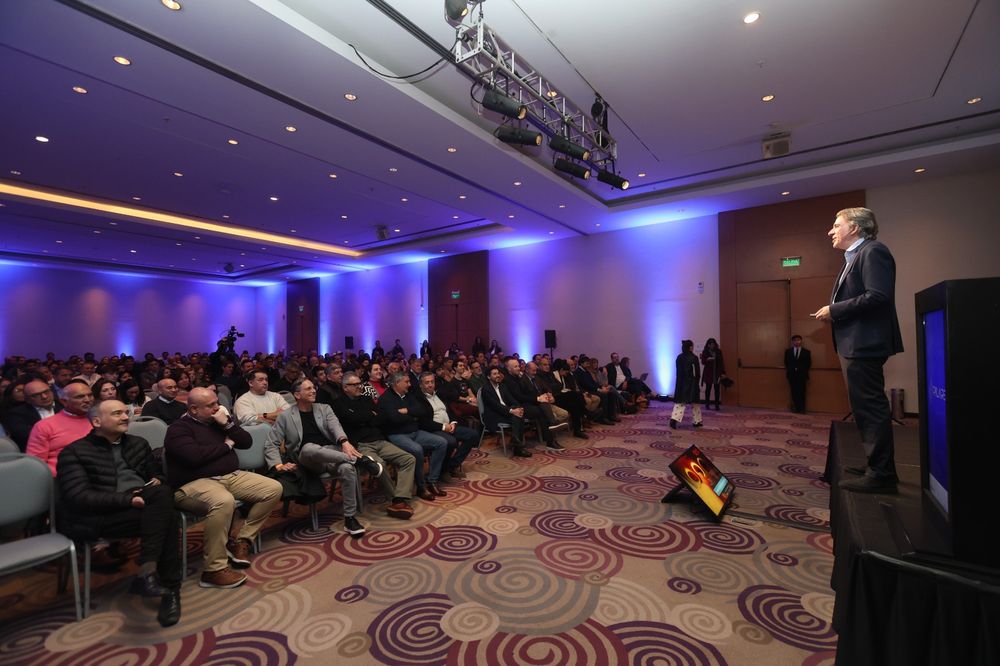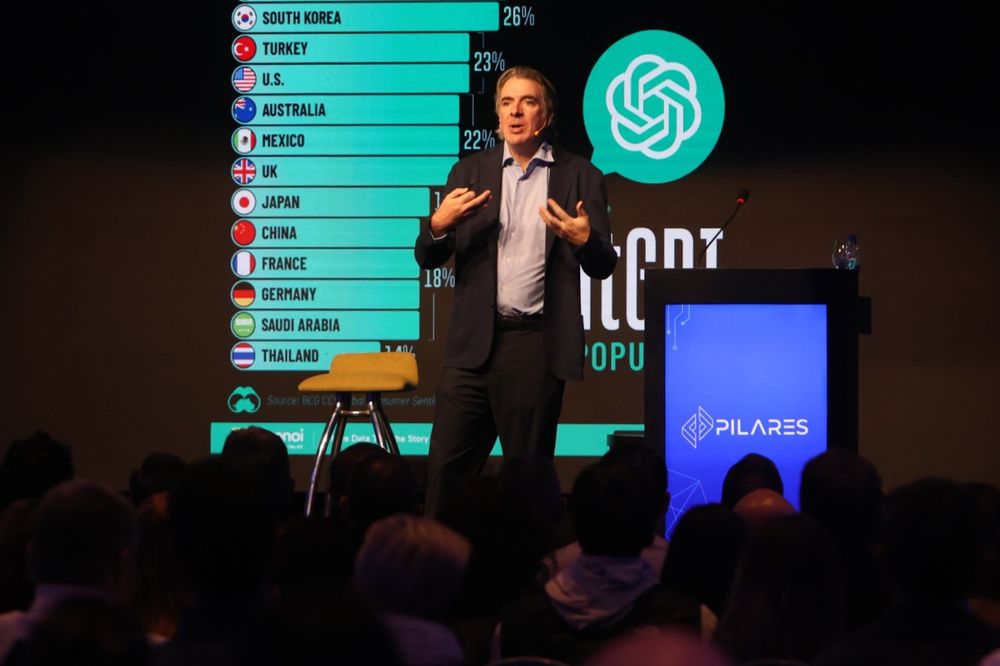Sebastián Campanario analyzes the impact of AI on the Pilares Cycle: "Everything we're experiencing is unprecedented."

In times where technology is more prevalent than ever, understanding where we're headed is no longer a luxury, but a necessity. The Pillars: Technology, the Future of Work, and Artificial Intelligence series was created with the aim of bringing together expert voices to reflect on the present with a view to the future.
The meeting, which brings together five key figures on a single stage, will take place on Wednesday, June 18, at the Hilton Hotel in Guaymallén , starting at 8:30 a.m. Among them is Sebastián Campanario , an economist , journalist , and popularizer . He offers a look at the accelerated changes brought about by Artificial Intelligence and how these changes are already reshaping the world of work, innovation, and everyday life.
During his presentation, Sebastián Campanario highlighted the dizzying pace of Artificial Intelligence. "We're living decades in weeks," he stated, describing a phenomenon that, in his words, had never been seen in recent history. "As an innovation journalist, I've never seen topics become obsolete overnight. And this is happening today with artificial intelligence," he asserted.
Sebastián Campanario (1).jpeg

The Andes
To illustrate the acceleration of these processes, he used a metaphor from the crypto world: "What was thought to happen between now and 2035 is now being compressed into a single year." He emphasized that "there is no precedent for the use of the word 'unprecedented'" and that generative AI is central to this transformation. "It has never been such a dominant theme on the innovation agenda," he emphasized.
Campanario also referred to platforms like Metaculous, where specialists bet on future events linked to AI . "The big question is when Artificial General Intelligence will arrive. Today, the average estimate is 2027," he explained. He also highlighted that Latin America , particularly Argentina , has been adopting this technology intensively.
“In proportion to the population, there are more people using ChatGPT in Argentina, Brazil, and Mexico than in the United States or India,” and he attributed this phenomenon to the cultural affinity with conversational interfaces: “Latinos like to chat, to close a sale by talking. That's why it fits so well with our way of life.”
Human connections in the age of algorithms: how work is changingCampanario warned that the big change isn't job losses, but rather their transformation. "It's not that we're going to lose jobs, but rather job descriptions. We're going to do something very different," he stated, recalling that many of today's professions didn't exist just a few decades ago. However, he acknowledged that the advancement of these technologies is generating anxiety: "We're sleeping less because of the vertigo all this is causing."
Pillars Cycle.jpeg

Marcelo Alverez
Faced with this scenario, he identified a trend he called "superhumanization." As digital technology expands, people seek to reconnect with real-life experiences. "People have never traveled as much as they do now. And dating apps have reached their peak. Today, people prefer to meet someone in person," he explained. He also mentioned initiatives that seek to highlight human work, such as tagged content or messages on buildings that honor manual labor.
“The feeling is that this time we're facing a different phenomenon. It's not like the metaverse or blockchain. It's qualitatively different,” he concluded. Amid the turmoil, his message was clear: “When everything is automated, what remains are the connections.” An invitation to rethink our place in this new technological era.
Exponential change and multiple dimensions: an increasingly complex worldDuring his presentation, Sebastián Campanario analyzed how the perception of time has changed in the face of a constantly changing reality. "We tend to overestimate short-term change and underestimate medium- and long-term change," he said, explaining that "in the short term, perhaps not everything will change that much; more so than tomorrow a giant wave will come, cover everything up, and then everything will change," although he warned that "in two years, everything will change a lot."
In this regard, he recommended adopting a balanced attitude: "We must not be too anxious about changing 180 degrees from today to tomorrow, but rather think very strategically that everything will change a lot in the next two or three years." He also emphasized that the very perception of time has also been altered by the speed of recent changes: "Until recently, the medium term was five or ten years; now it's one, two, three years."
Sebastián Campanario.jpeg

Marcelo Alverez
Campanario also broadened the focus beyond technological advancement, warning that “technology is only one avenue of change” and listing other key vectors: “There is demographic change, climate change, biological change, political change.” In his opinion, there is a tendency to reduce the debate solely to the digital: “We tend to think only about digital issues, robotics, AI, and perhaps we don’t pay attention to demographic issues because things as constructive aren’t happening.”
In line with this multidimensional approach, he shared a central concept of his recent work: “My last three books are about demographic change, the senior revolution,” and he emphasized: “For the first time in human history, a third of us will be over 60 years old.”
To explain the interaction between different transformations, he quoted futurologist Amy Webb: “We have many technologies that, if you separate them, each one is tremendously destructive, but they're also all interacting with each other, feeding off each other.” He added his own interpretation: “In addition to technologies, we have demographic, political, and biological change; there are other avenues of change that aren't technological.”
Finally, he made a clear diagnosis of the present: “Today we are in a world that is, by several orders of magnitude, more complex than the one we had during the pandemic,” and concluded that “the pandemic greatly increased the complexity of the world.”
losandes





